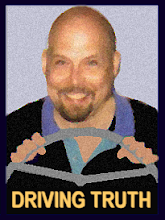It has been said that the moment we are born, we begin the process of dying. To the extent that I learn to maintain that fact in my consciousness, can be the deciding factor in how much I accomplish with my life.
In terms of what is known now about the physical mechanism of how human life begins, we should be developing a sensitivity to that period spanning from the beginning of the biological development of a human being until her/his birth. Instead, the more humankind knows about the continuum of a person’s life from true conception until natural death, the tendency toward denial that a particular human maintains continuity throughout, has become greater by the whole of humanity. Perhaps the consciousness of life around us, of which we were not previously aware, both pre-birth and post-productive, is too overwhelming . Or maybe it is too inconvenient to cope with. Humans are more comfortable it seems, psychologically, to think of themselves as Human Doings rather than Human Beings.
What’s different now than say, 100 years ago?
Do we really know more? Have we learned how to predict the future with scientific accuracy? Can we re-play all (or even segments) of our life to take advantage of things we may have opted to do differently if we "knew then what we know now?" Can we prove with any certainty how a person comes into being... or what precisely happens subjectively during death... or what subsequently occurs after a person dies?
Science has indeed provided some details. We know much more about the makeup of the human body and conversely what it is not. We can identify Homo Sapiens more accurately so to speak.
But what about the self-conscious notion of what we do not know - doubt? We certainly don’t "entertain" it like we used to. In fact, a case could be made that we as a culture are in severe denial that it even exists. Life is no longer given the benefit of the doubt.
If one does not yet know the perspective of life from one’s future state not-yet-lived, how can one accurately plan or make medical directives to accomodate unanticipated circumstances? From Trisha’s lived perspective, was there any way for her to change her mind if she was enlightened by new information? Perhaps, once having experienced the perspective of a state of coma, she would have preferred it over one of the slowest starvation deaths on record. Some were in fact wondering if her demonstrated will to live did itself function as an attempt to communicate a different decision, toward facts as she knew them, than what she previously anticipated.
Are we no longer allowed to even ASK these types of questions? According to accounts published by the traditional media, one would have to conclude there IS no other perspective than the one the family chose to implement. Ethicists have feared that if society continued on the current path, the "right to die" would transform into the "duty to die." If Trisha Rushing Duguay’s truncated life has provoked no circumspection, or in fact discouraged a contrary ethical viewpoint, I submit that society has already arrived at that monstrous, nightmarish locality.
The "quality" of life is subjective by definition. One can only evaluate it reasonably, only after one arrives at a particular stage of life. Even the long, happy life is eventually impeded gradually by loss of function due to the very nature of aging.
"How’s it goin’?"
"Still kickin’ . . . Better than the alternative!"
"You’re gettin’ old!"
"Yeah, still better than the alternative."
A witty philosophical retort may have just passed into history. Do all of us already belong to the ages, even before each temporal existence has ended?
Apparently, this is no longer a truth: "It’s not over, ‘til it’s over."
~ groovsmyth
















No comments:
Post a Comment